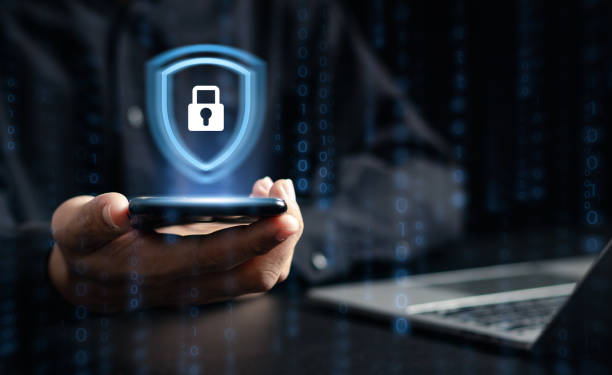Introduction
In today’s digital era, making sure the security of your online identity has become more crucial than ever. With the increasing prevalence of cyber threats and data breaches, it’s essential to equip yourself with the knowledge and tools to protect your personal information. Well, don’t fret. This comprehensive guide will provide you with expert tips and strategies to enhance your internet security and safeguard your online identity. Without any further ado, let’s dive in and explore the ultimate guide to internet security.
Creating Strong and Unique Passwords
When it comes to internet security, creating strong and unique passwords is the first line of defense against unauthorized access to your online accounts. By following these guidelines, you can strengthen the security of your passwords:
Length: Choose passwords that are at least 12 characters long, as longer passwords are more challenging to crack.
Complexity: Include a combination of uppercase and lowercase letters, numbers, and special characters to enhance the complexity of your passwords.
Avoid Personal Information: Refrain from using personal information such as your name, birthdate, or address in your passwords.
Unique Passwords: Use different passwords for each of your online accounts to prevent a domino effect in case one account is compromised.
By implementing these practices, you can significantly reduce the risk of your passwords being compromised by malicious individuals.
Two-Factor Authentication: An Extra Layer of Security
While strong passwords are crucial but adding an extra layer of security is always a smart move. This is where two-factor authentication (2FA) comes into play. By enabling 2FA, you add an additional verification step to your login process, typically in the form of a unique code sent to your mobile device. This way, even if someone manages to obtain your password, they won’t be able to access your account without the second verification factor.
Keeping Your Devices Secure
Securing your devices is paramount when it comes to protecting your online identity. Here are some essential measures to consider:
Operating System Updates: Keeping your devices up to date with the latest operating system patches and security updates is crucial. These updates often include fixes for vulnerabilities that cybercriminals can exploit.
Install Antivirus Software: Use reputable antivirus software to detect and remove malware from your devices. Regularly update your antivirus software to ensure you have the latest protection against emerging threats.
Enable Automatic Updates: Configure your devices to automatically install software updates. This way, you’ll always have the latest security patches and bug fixes.

Securing Your Internet Connection
Your internet connection serves as a gateway to the online world, making its security a crucial aspect of protecting your online identity. Consider the following steps to secure your internet connection:
Use WPA2 or WPA3 Encryption: Ensure that your Wi-Fi network is encrypted using the latest security protocols such as WPA2 or WPA3. This encryption prevents unauthorized individuals from accessing your network and intercepting your data.
Change Default Router Passwords: Change the default administrative password on your router to a strong, unique password. This helps prevent unauthorized access to your router’s settings and configurations.
Disable Remote Management: Turn off remote management features on your router to minimize the risk of remote attacks. Remote management should only be enabled if necessary and with proper security measures in place.
By securing your internet connection, you create a safer environment for your online activities and reduce the risk of unauthorized access to your personal information.
| Call 866-861-4084 for Internet Deals |
Safeguarding Personal Information Online
Well, protecting your personal information is very important to maintaining your online identity’s security. For that, you must follow these best practices to safeguard your personal information.
Beware of Phishing Attempts: Be cautious of suspicious emails, messages, or calls requesting personal information. Phishing attempts often disguise themselves as legitimate entities to trick individuals into divulging sensitive data.
Encrypt Sensitive Data: When transmitting sensitive information online, ensure that the connection is encrypted using protocols like HTTPS. This encryption protects your data from being intercepted by unauthorized parties.
Review Privacy Settings: Regularly review the privacy settings on your social media accounts and other online platforms. Limit the amount of personal information visible to others and adjust the settings according to your comfort level.
By implementing these measures, you can significantly reduce the risk of your personal information falling into the wrong hands.
Staying Safe on Social Media
In this digital age, social media platforms have become an integral part of our lives but they also present potential risks to our online security. That is why you need to follow these guidelines to stay safe while using social media.
Manage Privacy Settings: Review and adjust the privacy settings on your social media accounts. Limit the amount of personal information visible to the public and consider restricting access to your posts and profile to trusted connections only.
Be Mindful of Sharing Personal Information: Avoid sharing sensitive personal information such as your address, phone number, or financial details on social media. Cybercriminals can exploit this information for fraudulent activities or identity theft.
Beware of Suspicious Links and Requests: Exercise caution when clicking on links or accepting friend requests from unknown individuals. These could be phishing attempts or attempts to gain unauthorized access to your account.
Enable Two-Factor Authentication: Many social media platforms offer the option to enable two-factor authentication. By activating this feature, you add an extra layer of security to your account, making it more difficult for unauthorized individuals to gain access.
By being vigilant and implementing these measures, you can enjoy the benefits of social media while minimizing the risks to your online identity.
Safe Online Shopping Practices
Online shopping has revolutionized the way we shop, all thanks to the internet but it also comes with its share of security concerns. To protect your online identity while shopping, must follow the following tips.
Shop from Trusted Websites: Stick to reputable and well-known online retailers. Look for secure website indicators such as a padlock symbol in the address bar and an “https://” prefix, indicating a secure connection.
Use Strong Passwords: Make sure that you have strong, unique passwords for your online shopping accounts. Avoid using the same password across multiple websites to prevent potential data breaches.
Be Wary of Suspicious Emails: Exercise caution when receiving emails regarding online shopping. Be skeptical of emails claiming to offer exclusive deals or requesting your personal information. Verify the legitimacy of such emails by contacting the retailer directly through their official website or customer support channels.
Protect Your Payment Information: When making online purchases, only provide your payment information on secure and reputable platforms. Avoid entering your credit card details on unfamiliar or unsecured websites.
Monitor Your Financial Statements: Regularly review your bank and credit card statements for any unauthorized transactions. Report any suspicious activity to your financial institution immediately.
By following these practices, you can enjoy the convenience of online shopping while minimizing the risks to your online identity and financial security.

Mobile Security Best Practices
As smartphones have become an essential part of our lives, it’s crucial to prioritize mobile security. Consider the following measures to protect your online identity on mobile devices:
Keep Your Device Updated: Regularly update your smartphone’s operating system and applications to ensure you have the latest security patches and bug fixes. Enable automatic updates whenever possible.
Use Secure Wi-Fi Networks: When connecting to public Wi-Fi networks, exercise caution. Avoid accessing sensitive information such as online banking or entering passwords when connected to unsecured or unfamiliar networks. Consider using a virtual private network (VPN) to encrypt your connection and enhance security.
Install Mobile Security Apps: Utilize reputable mobile security applications to protect your device from malware and other threats. These apps can provide real-time scanning, safe browsing features, and anti-theft capabilities.
Enable Biometric Authentication: Take advantage of biometric authentication options such as fingerprint or facial recognition to secure your device. These features provide an additional layer of protection beyond traditional passcodes or PINs.
By implementing these mobile security best practices, you can safeguard your online identity and personal information while using your smartphone.
Regularly Back Up Your Data
Well, you can lose your data due to various reasons, including hardware failure, malware attacks, or accidental deletion. That is why regularly backing up your data ensures that you can recover important files and information in the event of an unexpected incident. Consider the following backup practices:
Cloud Storage: Utilize cloud storage services to back up your files and documents. Cloud storage provides the advantage of accessibility from anywhere while offering redundancy and data protection.
External Hard Drives: Use external hard drives or solid-state drives (SSDs) to create local backups of your data. Keep these backups in a safe location separate from your primary device to protect against physical damage or theft.
Automate Backups: Set up automated backup schedules to ensure that your data is consistently and regularly backed up without relying on manual processes. This reduces the risk of forgetting to back up important files.
The frequency of data backups depends on the importance and frequency of changes to your data. For critical data, consider daily or weekly backups. For less critical data, monthly backups may be sufficient. Automated backups help ensure consistency and minimize the risk of forgetting to back up.
| Call 866-861-4084 for Internet Deals |
Conclusion
In today’s digital landscape, protecting your online identity is paramount. By following the expert tips and strategies outlined in this ultimate guide to internet security, you can fortify your defenses, safeguard your personal information, and reduce the risks of cyber threats. Remember to create strong and unique passwords, enable two-factor authentication, secure your devices, protect your internet connection, and practice safe online habits. Stay informed, stay vigilant, and prioritize your online security to enjoy a safer and more secure digital experience.
Frequently Asked Questions (FAQs)
Q: How often should I change my passwords?
A: It is recommended to change your passwords every three to six months to maintain optimal security.
Q: What should I do if I suspect my online account has been compromised?
A: If you suspect that your online account has been compromised, immediately change your password, enable two-factor authentication if available, and contact the platform’s support team for further assistance.
Q: Is it safe to use public Wi-Fi networks?
A: Public Wi-Fi networks can be risky. It’s best to avoid accessing sensitive information such as online banking or entering passwords when connected to public Wi-Fi. If necessary, consider using a virtual private network (VPN) to encrypt your connection and enhance security.
Q: How can I protect my children’s online safety?
A: Educate your children about online safety, set boundaries on their internet usage, and utilize parental control software to filter and monitor their online activities.
Q: What is ransomware, and how can I protect against it?
A: Ransomware is a type of malware that encrypts your files and demands a ransom for their release. To protect against ransomware, regularly back up your data, keep your software up to date, and exercise caution when opening email attachments or downloading files from untrusted sources.
Q: Should I use a password manager?
A: Password managers can be a useful tool for securely storing and generating strong passwords. They can help you manage multiple unique passwords without the risk of forgetting them. However, choose a reputable password manager and set a strong master password to protect your password vault.